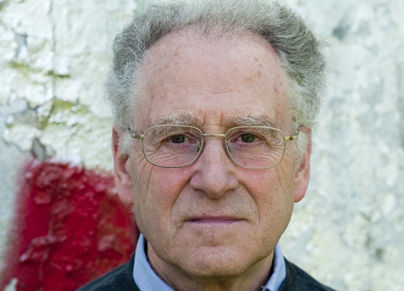Konrad Weiß
geboren 1942 in Lauban
In March 1989, a piece was published in East German samizdat that caused fierce debate. Under the heading Die neue alte Gefahr. Junge Faschisten in der DDR (The New Old Threat. Young Fascists in the GDR), film director Konrad Weiß had written about the phenomenon of fascists and neo-fascists in the GDR. Through his findings, Weiß had painted a frightening genre picture of East German society. It was an analytical blow that struck close to the heart of the ruling communists. For Konrad Weiß, it was a long and thorny road from his oppressive experiences as the only practising Catholic in his class at school, being refused admission to secondary school and his involvement in the Aktion Sühnezeichen Friedensdienste (Action Reconciliation Service for Peace, ASF) to his open political commitment in a closed society.
In early September 1989, he was among the initiators of the civil rights movement Demokratie Jetzt (Democracy Now). What the public saw was a man who was principled but no stickler for principles, who was able to express his opinion persistently but was also open to counter-arguments. As a representative of the Central Round Table, in front of rolling cameras, he calmed down the crowd of people who were storming the Stasi headquarters in East Berlin on 15 January 1990. On 12 April 1990, in the People’s Chamber, he initiated a declaration in which the GDR officially apologised to the Jews for the Shoah and its anti-Israel policy for the first time. During the last days of the GDR, he energetically fought for the later Stasi Records Act to be incorporated into the Unification Treaty.
In June 1989, Konrad Weiß wrote in the Hamburg Zeit newspaper that the idea of unity was more alive in the East than in the West and that he hoped German unity would become reality. Following this logic, he gave Democracy Now a vague draft reunification document, walked joyfully through a gap in the Berlin Wall at Bornholmer Strasse on 9 November 1989, and was still one of the initiators of the appeal Für unser Land (For Our Country) in late November 1989. He had also helped draft this.
Konrad Weiß wanted unity but unity negotiated by partners on an equal footing. In his opinion, this first required a democratically constituted state in the GDR. Article 146 of the Basic Law was in line with what he had in mind, rather than the method under Article 23. When he realised what he proposed was not feasible, on 17 June 1990, in a process that resembled a coup, he attempted to push the immediate accession of the GDR in accordance with Article 23 through the People’s Chamber. This would have meant that the GDR Länder would have immediately enjoyed all the same rights as the West German Länder without the need for a Unification Treaty. The shock caused by this radical alternative was clearly visible on the faces of the GDR government and of Federal Chancellor Kohl, who was watching what was happening in the plenary hall, and had to helplessly look on for four hours from the gallery. Weiß never acted as an enfant terrible towards the people – but sometimes towards those in government.
Ilko-Sascha Kowalczuk

